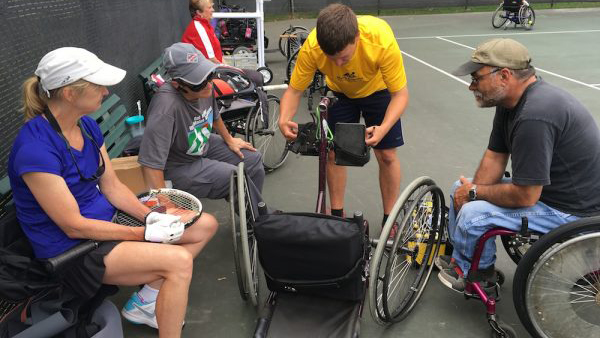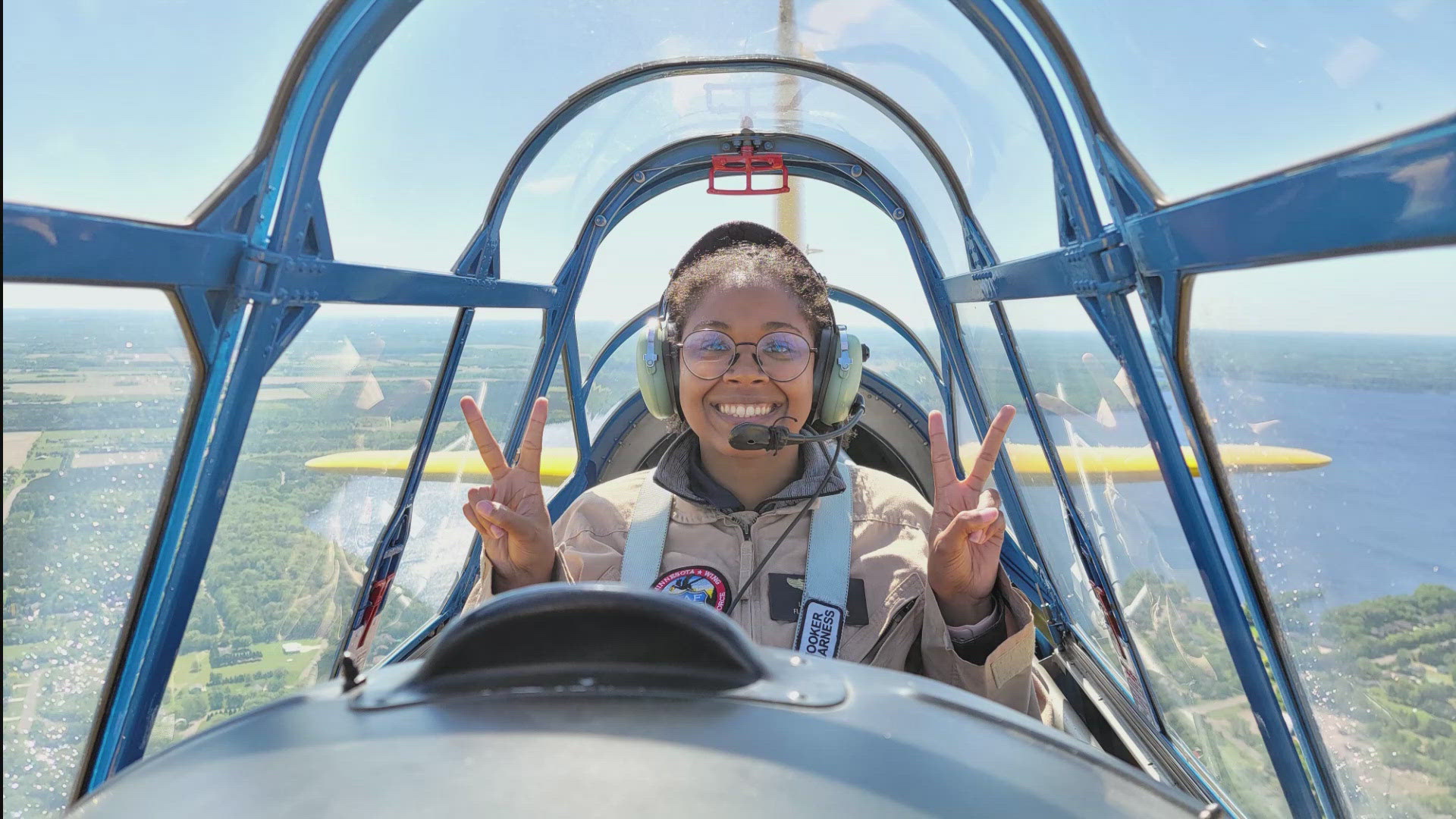(NEWS CENTER) -- Diane Atwood, of Catching Health blog, discusses adaptive sports.
Being in a wheelchair hasn’t prevented these people from playing an energetic game of tennis
It was an exciting day for Raymond Doyon. Encouraged by his friend Leo Glaude, he decided to try his hand at tennis. This was a big deal because ever since he became paralyzed in an accident 20 years ago, Ray says he’s spent way too much time watching TV and feeling depressed. “My wife works and I was home alone,” he says. “It’s not a life. Many times I remember I wanted to die.”
I met up with Ray and Leo and several other tennis enthusiasts at Pineland Farms in New Gloucester. They were all there to play wheelchair tennis. Maine Adaptive Sports & Recreation offers the program in collaboration with the Veterans Adaptive Sports and Training Program (VAST) at Pineland.
Maine Adaptive, which is based at Sunday River in Newry, was founded in 1982 by Dr. Omar (Chip) Crothers, a Portland-based orthopedic surgeon and Leslie B. Otten, founder of American Skiing Company. It started out as an adaptive ski program, the first adaptive program for people with disabilities in Maine. Today it offers a variety of programs from skiing, snowboarding and snowshoeing in the winter to paddling, cycling, golf and tennis in the summer.
Brandon Merry is the program coordinator at Maine Adaptive. He does a lot more than his title suggests. I saw him throwing and retrieving balls and repairing wheelchairs.
“It absolutely blows my mind every day to see what everybody does,” he says. “Pushing their personal goals further and further every year and also seeing the volunteers who are showing up every day and putting their own time in to help in any way possible.”
Brandon says it was his grandmother who inspired him to pursue a career in occupational therapy and to eventually work at Maine Adaptive. When he was a boy she lost part of her leg to diabetes and had to wear a prosthesis. “Her biggest thing was getting back outside,” he explains. “The doctors kept saying no you’re not going to be able to go on a four-wheeler, you’re not going to be able to garden and she said just watch me.”
VAST provides a variety of sports and recreational programs, such as archery, cycling, basketball and floor hockey for veterans with physical disabilities, post-traumatic stress or traumatic brain injuries. It also collaborates with other organizations like Maine Adaptive. For instance, VAST supplies wheelchairs for tennis and basketball programs. Maine Adaptive supplies bikes for the cycling program.
Rob McAleer, a VAST volunteer, shows how a wheelchair is adapted for sports. The wheels are angled instead of straight. That’s so the chair won’t tip easily and it can spin around quickly. Anti-tippers in the back also help prevent tipping. A seatbelt and a strap around the lower legs help keep you securely in place.
John Pelletier, who has been playing wheelchair tennis (and playing it well) since 2008, volunteered to teach it to his buddies in Maine Adaptive’s ski program.
“Tennis is extremely competitive and it’s a great workout,” he says. “You’ll see we never stop moving our chairs. The secret to wheelchair tennis is never stop moving. Because if you do you have to start up again. You have to be constantly moving to get into position for the next ball.”
John fell 23 feet from a tree stand while hunting about 10 years ago. He says he was grateful to be alive. Regular exercise is what keeps him alive and off medication. “I got off everything and just started exercising,” he says. “I swim a half a mile three days a week. I play tennis three or four days a week. I ski, I hand cycle, just stay really active. I still hunt, I get my deer every year. In fact, I’m going up to Kansas bow hunting in September.”
Out on the court, he and other participants and volunteers practice maneuvering their chairs and hitting and serving the ball. It was pretty amazing to watch so many people rolling around in their wheelchairs — with huge smiles on their faces.
Including Heidi Conn who was paralyzed from the chest down because of a medical event five years ago. She told me she was angry for a long time, but no longer. “I really worked hard on that acceptance piece. I used to have a resentment toward everyone who could walk or do some cool adventure. I don’t have that anymore. It’s huge for me. Being here helps me do that.”
Kristina Sabasteanksi, who runs VAST, says it’s easy to get caught in a downward spiral. “We’re hoping this is an upward spiral,” she says, “so they say this is fun, what else can I do? If someone would just make the first call. Just get out that one time and remember what’s it like to laugh again and smile then there’s a lot of opportunities. Just try it.”
That’s what Ray Doyon did. He showed up and gave it a try. “I’m very active doing body work but I’ve never done this in my life. I’m going to try it. I’ve never seen so many people all in one place like this. It’s a good feeling. I’m looking forward to belonging. They say it’s a great group.”
Check out their websites to get more information about Maine Adaptive Sports & Recreation and VAST. Both also have links to other resources.
And if you’d like to see a video of people playing wheelchair tennis, here’s one shot by Maine Adaptive in 2015.


